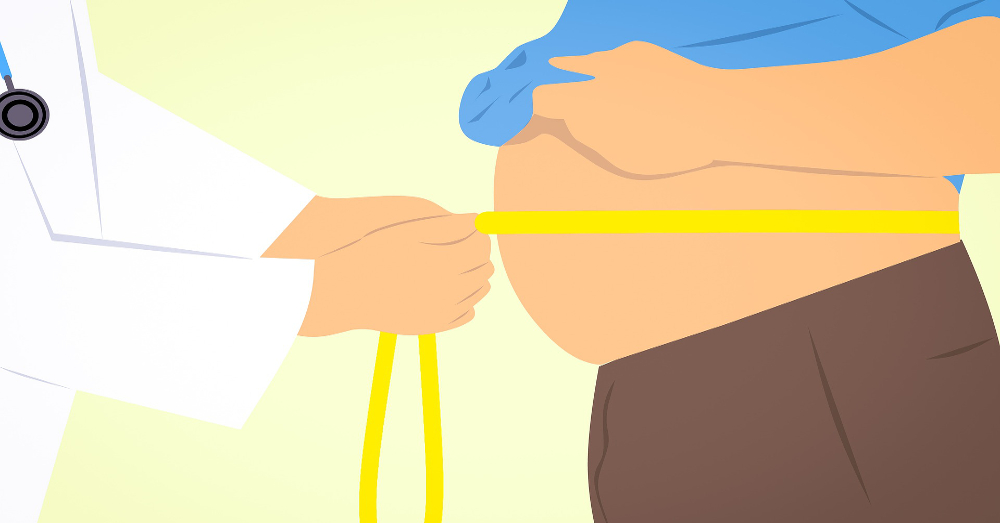
Can Reducing Your Exposure to Toxic Chemicals Prevent Obesity?
Research presented at the 20th European Congress of Endocrinology in Barcelona once again draws attention to hormone-disrupting chemicals and their suspected link to obesity. Researchers from two Portuguese universities evaluated current studies on obesity-causing chemicals, also known as "obesogens," to determine where people are most likely to come in contact with them.
June 16, 2018 | Source: Mercola.com | by Dr. Joseph Mercola
Research presented at the 20th European Congress of Endocrinology in Barcelona once again draws attention to hormone-disrupting chemicals and their suspected link to obesity. Researchers from two Portuguese universities evaluated current studies on obesity-causing chemicals, also known as “obesogens,” to determine where people are most likely to come in contact with them.
Based on the findings, the team made seven recommendations to minimize the buildup of obesogens in your body and home. Habits such as dusting regularly, eating pesticide-free food and removing your shoes when entering the house were called out as positive steps to fight obesity. Let’s take a closer look at obesity rates, obesogens and all seven of the proposed tips for staying slim.
How Big of an Issue Is Obesity Worldwide?
Obesity is defined as a medical condition marked by the accumulation of excess fat in your body. The word comes from the Latin word “obesus,” which roughly translates to “that which has eaten itself fat.”1 Obese people are generally at an increased risk of developing life-threatening complications and diseases. About obesity, the World Health Organization (WHO) says:2
|
In 2016, more than 1.9 billion adults worldwide were overweight, which is defined as a body mass index (BMI) of 25 or more; 650 million more were classified as obese, which is defined as a BMI of 30 or more |
|
At least 2.8 million people die annually due to factors related to being overweight or obese |
|
Global obesity rates tripled between 1975 and 2016 |
|
Once attributed to lifestyles in high-income countries, obesity is becoming more prevalent in low- and middle-income countries as well |
|
41 million preschool-aged children were overweight in 2016, making them more susceptible to becoming obese adults |
|
Being overweight or obese puts you at greater risk for certain cancers as well as diabetes and heart disease |
What Effect Do ‘Obesogens’ Have on Your Health?
Simply stated, chemicals or other factors that enter your body and alter the way you store fat are referred to as “obesogens.” Because obesogens are everywhere, it can be challenging to avoid them. Science Daily notes obesogens can disrupt your body by reprogramming how your cells work in two primary ways. They stated:3
“[Obesogens] can promote fat accumulation through increasing the number and size of fat cells or by increasing appetite, or they can make it more difficult to lose fat by changing your ability to burn calories. Previous studies have identified these chemicals in many everyday products such as pesticides, plastics, flame retardants, repellent coatings on kitchen utensils and clothes, and artificial sweeteners.”
After reviewing the current epidemiological surveys and animal studies related to obesogens, scientists at the Universities of Aveiro and Beira Interior in Portugal “found diet, house dust and everyday products such as cleaning chemicals, kitchenware or cosmetics [to be] the biggest sources of contaminants.”4
Based on their findings, which were presented at the 20th European Congress of Endocrinology, the researchers put forward seven recommendations they suggest may help prevent environmental chemicals from interfering with your hormones and promoting increased body fat.
About the recommendations, lead study author Ana Catarina Sousa, Ph.D., researcher at France’s LabEx DRIIHM (Interdisciplinary Research Mechanism on Human-Environmental Interactions), noted some of the common sources of obesogens and acknowledged the need for further research. She said:5
“These are baby steps to achieve an obesogen-free lifestyle but a really good start. Essentially, watch your diet and get rid of the dust at home. Adults ingest about 50 milligrams of dust every day, and children twice as much, so keeping the house clean is a very effective measure.
Obesogens can be found almost everywhere, and your diet is a main source of exposure, as some pesticides and artificial sweeteners are obesogens. Equally, they are present in plastics and home products, so completely reducing exposure is extremely difficult — but to significantly reduce it is not only feasible, but also very simple.”
